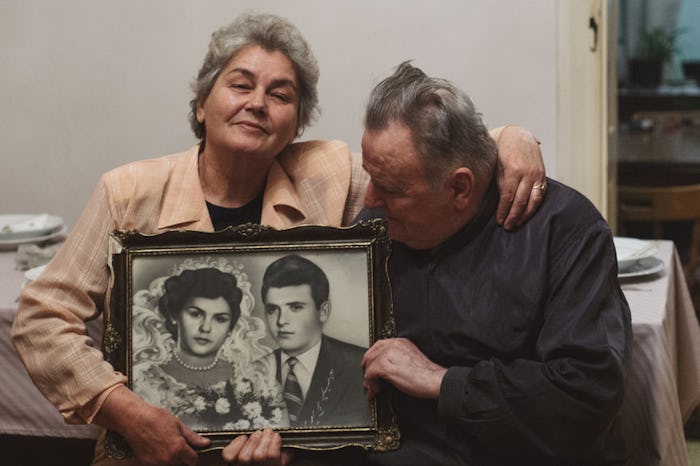Life

8 Naughty Old-Fashioned Sayings You Won’t Believe Were Popular
Old-fashioned sayings may sound all sweet, but sometimes these sentiments have a double meaning. If you check out the naughty old-fashioned sayings you won't believe were once popular, then you may never think about folksy statements the same way again. Sometimes these charming euphemisms are pretty darn dirty, or at least a bit risque.
Before personal matters were considered appropriate topics for conversation, people still managed to convey some pretty private ideas through the use of euphemisms. Whether it's referring to a potentially embarrassing wardrobe malfunction or any act of sexual congress, these phrases can say a whole lot in just a few words.
Although most people are way more open about these matters now, it's still fun to look at the creative and clever ways people discussed private topics in a roundabout way. To be honest, sometimes the euphemisms are weirder and seemingly more inappropriate than the things they hint at. (Just wait until you learn the meaning behind "Charlie's dead.") People in the past were just as interested in risque topics as people today, it's just that they had a more roundabout way of expressing those interests. So here are some of the best sayings from the past with secretly naughty meanings.
1Bed Is The Poor Man's Opera
Well, this one is fairly self-explanatory. It's an old Italian proverb that proves at least one form of entertainment is available for pretty much anyone, as explained in Mental Floss. To be fair, it could also be referring to dreaming.
2In An Interesting Condition
This phrase dates back to a time when speaking openly about pregnancy was something of a taboo. At any rate, being in "an interesting condition" referred to a pregnant person, according to The Phrase Finder. Its been in use since the 1700s.
3Have A Tiff
Today a mild argument might be described as a tiff. But in the 1800s, having a tiff might refer to sex, according to Mental Floss. It also referred to eating or drinking something in between meals, AKA a snack.
4The Barn Door Is Open
This is an old-school way of letting someone know their pants zipper is down, according to Hartford Courant. It's a little more colorful than simply saying "Your fly is open."
5It's Snowing Down South
This is a random phrase I remember from my own background in the south. It's used as a subtle way to tell a lady her slip is showing underneath her dress, given that slips or petticoats are often white. Apparently showing your slip was a big faux pas back in the day.
6Sowing Wild Oats
This phrase made a lot of sense back when many people had to farm for a living. Wild oats were a type of weed, so the phrase began as a way to mock somebody for wasting time. Who would waste all the effort it takes to plant weeds, after all? Over the years, however, the phrase referred to young men going through a phase of promiscuity, according to World Wide Words. Someone who's "sowing their wild oats" is enjoying sex with a variety of people, in other words.
7The Rabbit Died
Well, this phrase has some pretty sad origins. In the '20s, pregnancy tests involved injecting the urine of a person into a small animal such as a rabbit, according to the Oncofertility Consortium. This was known as the rabbit test. If injected with a pregnant person's urine, the rabbit's ovaries would react by expanding in size and turning yellow, as further explained by the Oncofertility Consortium. But sadly for the rabbit, the easiest way to investigate its ovaries involved its death. Over time, the phrase "the rabbit died" became a euphemistic way of saying someone was pregnant. And fortunately, current pregnancy tests only involve urinating on a stick, which is great news for the rabbits of the world.
8Charlie's Dead
This is another phrase about undergarments, which makes me wonder why it was such a caution to have these pieces of clothing show. At any rate, telling someone "Charlie's dead" is a subtle way to warn that their petticoat was showing, according to BBC America. It was in reference to the female royalists who dipped their petticoats in the blood of Charles I at his beheading, as further explained in BBC America. For whatever reason, it was fine to reference grisly regicide in polite company, but not the word "petticoat." Hey, the rules surrounding manners can be super bizarre. But for the most part, the phrases people invented to get around the rules of society are pretty interesting.